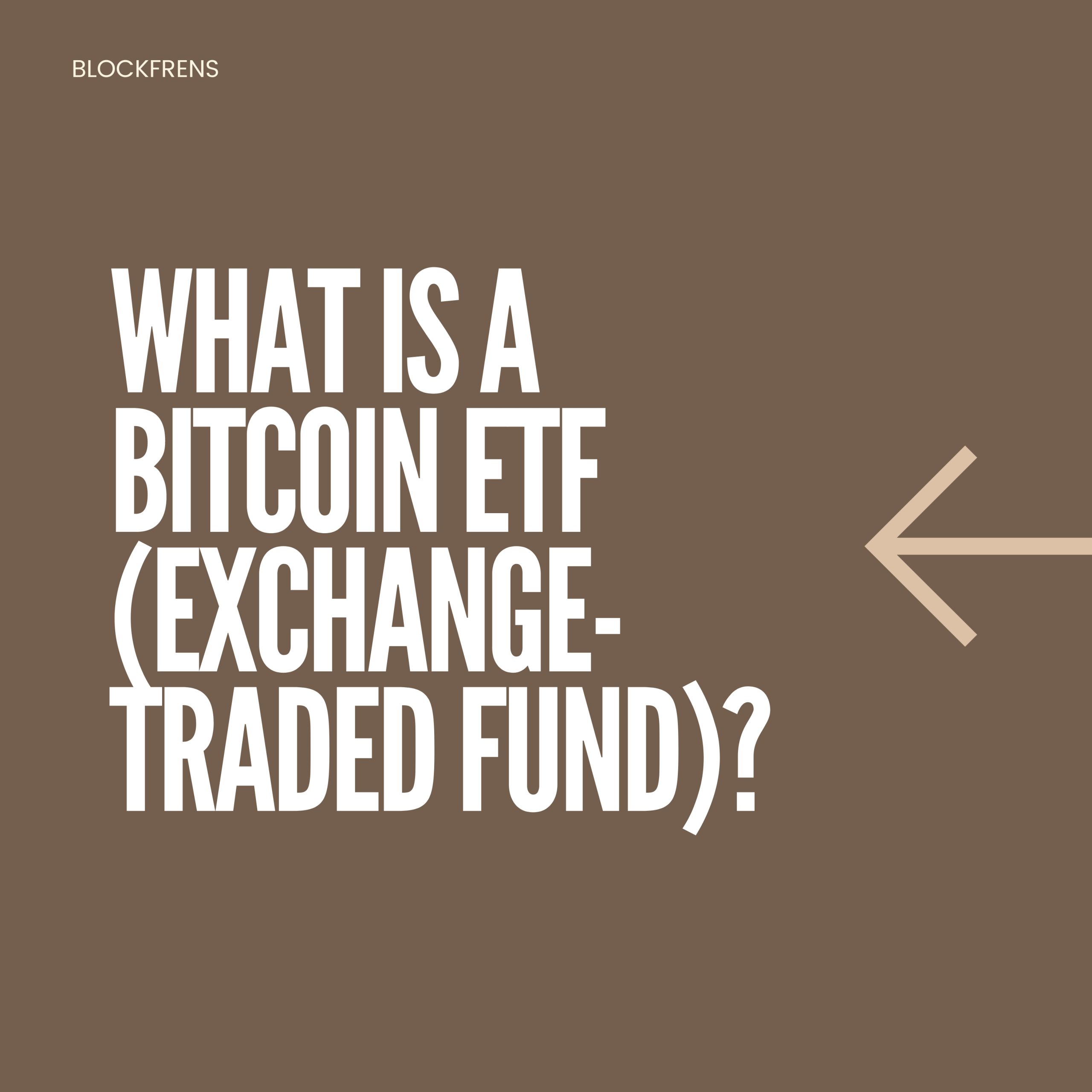What is a Bitcoin ETF (Exchange-Traded Fund)?
TLDR; A Bitcoin ETF, or Exchange-Traded Fund, is a type of financial product that provides exposure to Bitcoin without requiring investors to buy and securely store the digital currency themselves.
Essentially, a Bitcoin ETF tracks the price of Bitcoin and is traded on traditional market exchanges, like any other ETF or stock.
What is an ETF?
An Exchange-Traded Fund, or ETF, is a financial product that can be bought and sold on a stock exchange, much like individual stocks. What makes an ETF unique is its design. It’s created to track the performance of a specific index, sector, commodity, or asset, making it possible for investors to buy into a diversified collection of securities through a single transaction. ETFs offer notable benefits, including the ability to diversify, trade during market hours, and often lower costs compared to mutual funds.
WHAT IS BITCOIN?
Bitcoin Is the first-ever cryptocurrency – a digital or virtual form of currency secured with cryptography.
Bitcoin operates on a technology called blockchain, which is decentralized.
This means that unlike traditional currencies, Bitcoin is not governed by any central authority like a government or financial institution
HOW DOES A BITCOIN ETF WORK?
The forming of a Bitcoin ETF begins with its creation by the ETF provider, who sets up the investment strategy to align with the price movement of Bitcoin and arranges for the security and storage of the Bitcoins the ETF will hold.
The next step involves the ETF provider buying Bitcoins from various markets, which are then safely held in secure storage.
BlackRock, Fidelity, & Valkyrie have all filed for Bitcoin ETFs just this month.
Once the Bitcoins are securely stored, the ETF divides the total value of these holdings into shares that can be bought and sold by investors on a traditional stock exchange.
The ETF provider is responsible for managing the fund, ensuring accurate tracking of Bitcoin’s price, securing the Bitcoin holdings, and handling necessary regulatory requirements.
BENEFITS OF A BITCOIN ETF
- Accessibility: Bitcoin ETFs operate within traditional financial infrastructure, making it easier for traditional investors to get exposure to Bitcoin.
- Ease of Investment: Investors can gain exposure to Bitcoin without dealing with the complexities and security issues associated with buying and storing Bitcoin directly.
- Regulatory Oversight: Bitcoin ETFs are subject to regulations which provide a level of protection for investors.
- Diversification: For investors looking to diversify their portfolio with digital assets, Bitcoin ETFs offer a straightforward way to do so.
Potential Risks/Downsides of a Bitcoin ETF
- Bitcoin’s Volatility: Bitcoin is known for its price volatility, which can result in large price swings, and can significantly impact the value of a Bitcoin ETF.
- Management Fees: Although usually lower than mutual funds, ETFs still involve management fees which can affect overall returns.
- Tracking Error: There might be a divergence from the actual price of Bitcoin due to factors like fees and administrative costs.
- Regulatory Risk: Depending on the regulatory environment, changes in laws or regulations could impact the value or operation of a Bitcoin ETF.
Spot Bitcoin ETF vs Futures-based Bitcoin ETF
A Spot Bitcoin ETF is a fund that directly purchases and holds Bitcoin as its underlying asset. The value of the ETF reflects the current, or ‘spot’ price of Bitcoin.
A Futures-based Bitcoin ETF, on the other hand, does not directly purchase Bitcoin. Instead, it buys Bitcoin futures contracts that speculate on the future price of Bitcoin.
THE CURRENT STATE OF BITCOINS ETFs
The future of Bitcoin ETFs looks promising. A host of firms including BlackRock, Fidelity, Invesco, and Valkyrie have recently filed or refiled for spot-Bitcoin ETFs.
Additionally, proposed surveillance-sharing agreements between regulated exchanges like Nasdaq and crypto exchange operators like Coinbase aim to address SEC’s concerns around market manipulation.
With the SEC already allowing futures-based Bitcoin ETFs, there is growing market optimism that a spot-Bitcoin ETF might soon be a reality.



Leave a Reply
You must be logged in to post a comment.